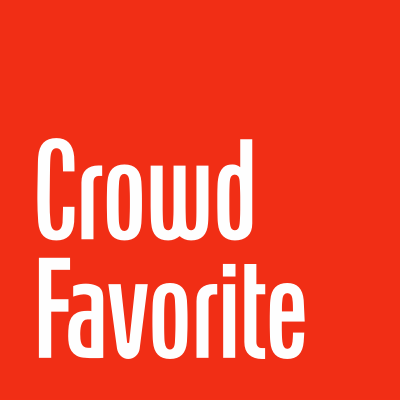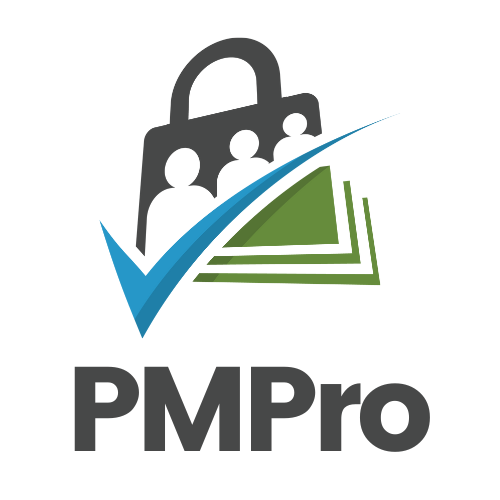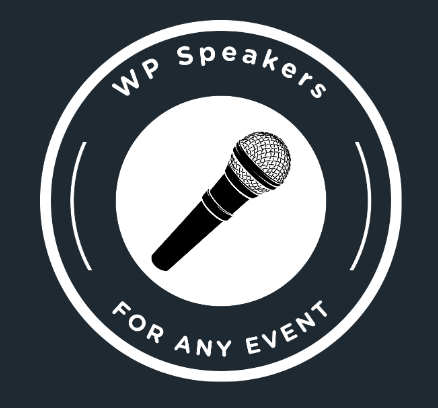Being A Queer Person in Tech
Episode 4: What is it like being a queer person in tech?
Over time, being out and queer is becoming less stigmatized. But tech still struggles to create safe, welcoming and inclusive spaces for people who identify as queer. In this episode Nyasha Green talks to Chris Ford, Mike Demo and Danielle Zarcaro about acceptance and navigating the tech community as a queer person.
Our Panelists

Chris Ford
After over 20 years as an agency and freelance designer and art director Chris was offered an opportunity to work with an industry leading agency as a project manager. She’s worked with a diverse client roster: small non-profits and design/marketing agencies, enterprise companies in software and higher ed. For the past several years she’s worked as a contract project manager splitting her time between managing complex projects and helping agencies streamline their project management processes to increase communication and efficiency. creativityincluded.com
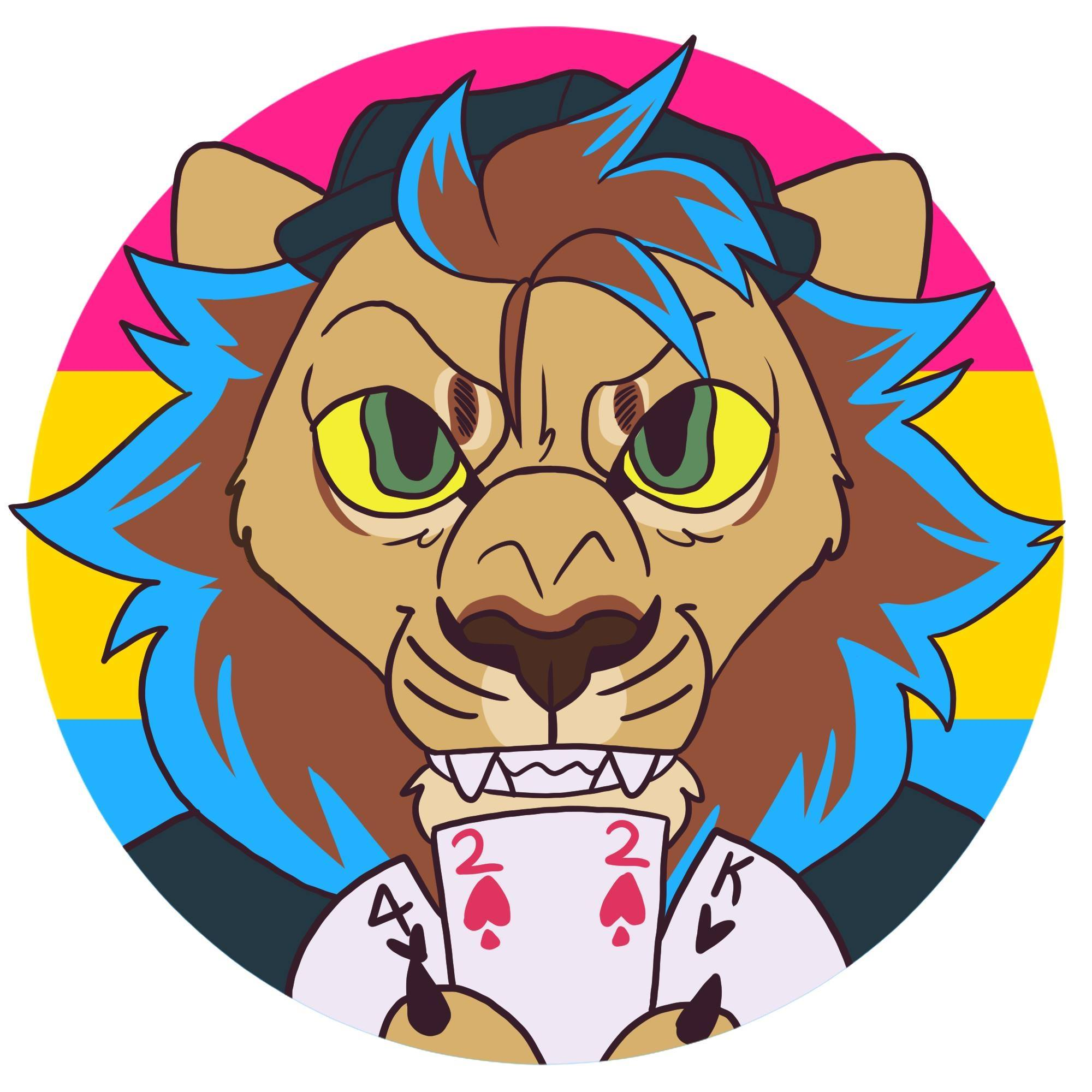
Mike Demo
Before coming to Codeable as the Head of Partners, Mike spent years at InMotion hosting with their BoldGrid and Web Venture brands. He believes in sharing his business acumen and marketing insight as it fits within his main goal of building community.
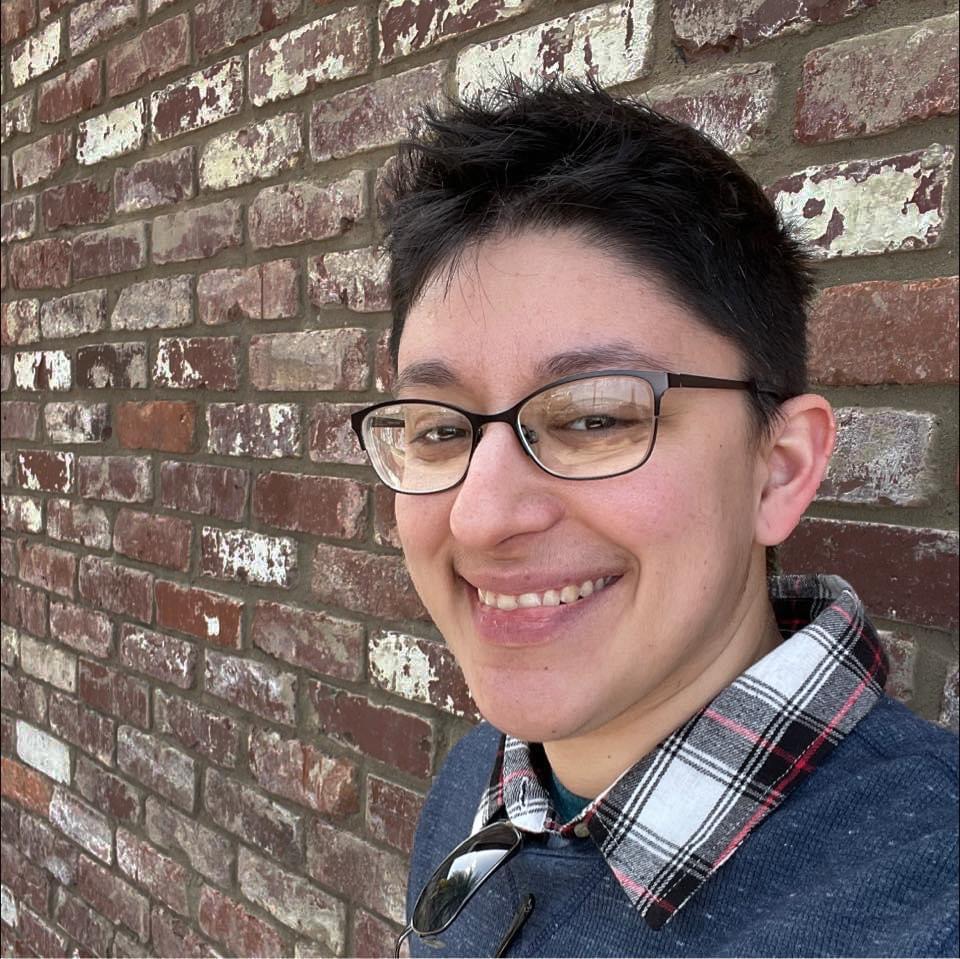
Danielle Zarcaro
Danielle Zarcaro has been developing and maintaining custom WordPress websites for over a decade. They’ll get excited any time there’s a gadget to tinker with or a puzzle to put together. You’ll often find them awake past sunrise and up in time for the sunset. kineticiris.com
Episode Transcript
What is it like being a queer person in tech?
Speaker 1:
Hi everyone. Thank you for tuning in. This is the Inclusive Webinar series. This episode today will be on what it’s like being queer in tech. Thank you to our sponsors. You can learn more about them via the links in the description of this video or at underrepresentedintech.com/webinar. My name is Nyasha Green and I’ll be your moderator for today. I am a software developer, writer, mentor, and podcaster in the tech space.
With me I have Danielle, and Danielle has been developing and maintaining custom WordPress websites for over a decade. They’ll get excited anytime there’s a gadget to tinker with or a puzzle to put together. You’ll often find them awake past sunrise and up in time for the sunset. I have with me also Chris. Chris, after over 20 years as an agency and freelance designer and art director, was offered an opportunity to work with an industry leading agency as a project manager. She’s worked with a diverse client roster, small nonprofits and design marketing agencies, enterprise companies, and software, and higher ed. And also with us we have Mike. Before coming to Codeable as the head of partners, Mike spent years at InMotion Hosting with their BoldGrid, and Web Venture brands. He believes in sharing his business acumen and marketing insight as it fits within his main goal of building community. All right, thank you all for joining us today and let’s get started. So for my first question, what do you all wish people knew or understood about what it’s like to be queer in tech?
Speaker 2:
Yeah, I can go ahead and start. I think after a while you sort of just get used to assuming you’re the only one, just because it’s safer that way and it’s easier to operate in a world where you’re around a bunch of people who aren’t like you to just sort of assume that and then be pleasantly surprised if that’s not the case. When you do happen to work with somebody who’s also a queer person or you find out and then it’s sort of like this happy thing and then you have to hope that you get along because just because you’re both queer does not mean you will get along. And so you have to hope for the best. And it’s hard to differentiate between what a person’s reason is for if they don’t like you.
After a while you stop trying to figure out why somebody might not like you, because so I’m neurodivergent as well, so I will often not follow some social rules. And so a lot of times that’ll make people feel that they don’t like me for one reason or another, and so could be that. Could be that I was once a female in tech and so was it that reason? And so you have to sort of actively remember that not everyone caress necessarily and you don’t always need to be on guard and it’s on them if they feel uncomfortable around you. And so you have to do this active work until it becomes second nature to be able to not always be on guard. Because then that takes energy and extra effort and this always on guard sort of thing. And I mean, it’s up to you individually too where it’s sort of like a disability where if it’s not a visible disability, you have to decide, do I make that conscious decision to come out at work?
And so if you do and if you don’t, those both come with positives and negatives. And so it’s sort of this complex thing of intersecting identities and it’s extra mental effort, I think to exist as a person who’s queer in the workplace, queer in tech, when anytime you’re doing something where you’re the minority in a thing, you have to decide not to care basically. And somebody is always going to feel like you’re not enough X to be able to be there. And so you have to sort of fight against that sort of stigma against that where you have this stereotypical persona and anytime you’re not that persona, you… You know?
Speaker 3:
So kind of spinning off on that disability thing. I follow a disability advocate on Twitter, and I’m not 100% sure I’m pronouncing her name correctly, it’s Imani Barbarin. And I read this tweet from her today that I was like, you read everything for a reason, because of this podcast today. And she just said, “Do you know…” And I’ll keep it clean because family show, but she said, “Do you know how much energy it takes to advocate for yourself every single day?” And it is, it is exhausting sometimes to have the onus on you. I am so over the, “Well, can’t you teach me?” And I’m like, I have been an out queer for over 25 years and the information is out there and I am so tired of it being my responsibility to hold your queerphobic or transphobic or anyone different from me phobic hand and walk you through the kindergarten of this information that is readily available. And it’s just some days you wake up and you’re just like, I’m so tired of doing this. You know what I mean?
I’m actually putting a resume together right now. And so one of the things I did is I went through every WordCamp talk. I have slides on my computer for so I could list out everything. And my first WordCamp Orange County was in 2013. And I will never forget standing outside, introducing myself to someone and bringing up my wife. And he was like, “Wow, you’re so brave.” And I just looked at him and I wish now I would’ve been like, “Why? Are you going to kick my butt?” I don’t get why it’s so brave to be honest about who I am. I mean, it’s pretty obvious I’m not running around passing at all. But yeah, it’s just tiring. And sometimes it’s just, if I could sum it up in one word, it’s like, really?
Speaker 2:
Yeah. I think too, going off of that, it’s hard to put yourself first a lot of times because you feel that responsibility to, if somebody’s going to ask you a question or whatever, you don’t want to come off as seeming, “I don’t want to explain that.” And that, “Well, I was just trying to find out.” Or, “I was just trying to…” So you want to, as myself, I feel compelled to explain that and stuff. And so you have to take that extra step to then protect yourself from always putting in that energy.
And it is interesting how, like you said, the accessibility community that I’m in, people with disabilities, all of these things sort of have things in common. I know a lot of people of color on Twitter have said things that I have had similar experiences of people talking to me and it’s sort of like I’m here to talk to you about all the queer things whenever I can, but also sometimes I just want to talk about how I can do this tech thing. Not everything that I say needs to be related to how queer I am. I’m just a person. So yeah, it’s definitely hard.
Speaker 3:
It is. It’s like dehumanizing. It’s like, I’m so much more than this one thing that you can’t seem to change to focus on. I’m this whole well-rounded… Like, dude, let’s talk about [inaudible 00:09:26].
Speaker 4:
Yeah. So I’m in a kind of an interesting position because I can pass because I’m in a monogamous what appears as a heterosexual relationship externally. And so a lot of people are confused when they hear about me being pan or non-binary. And then I get at every WordCamp, because I’m helping organize the Pride parties post-COVID, I get a lot of, “Well, does that mean you’re in an open relationship?” And it gets pretty tiring to have to explain that identity isn’t the same as… You can be queer and monogamous. You can be open and straight and all that’s valid, but having to explain it again, it gets a little tiring. And honestly kind of surprised that these questions keep coming up at WordCamps of all places. So it is interesting, like they were saying earlier that you always have to keep educating and it is… I do put myself in that position though because of the Pride parties, but it does take a lot of effort to try to advocate for yourself. And I wasn’t really out in WordPress until right before COVID, 2019, 2020 when I wrote a blog post about it.
Speaker 3:
And it has to be hard to come out post-2016.
Speaker 2:
And you’re always coming out too. There’s never a time when it’s like… I mean, even just from sexuality, from gender, from relationships. And it’s interesting when you have people, it’s basically you can ask the question, but you can’t be mad if I don’t feel like talking about it. There’s a time and a place for everything. And so it’s like, I’m not representative of myself at every moment and of every time, and I’m not representative of some kind of larger community. I am myself and I’m going to give you a little bit of insight from me. So it’s like you feel this pressure to sort of be this representation when you don’t have a company full of queer people that you’re working with and how different it is when there is more than two people in a company and how much more at ease you can feel when there’s just more people who are around you.
Speaker 1:
Awesome. Awesome. Thank you. Thank you. I have for our next question for all of you, what is the biggest challenge facing you as a queer person in tech right now? Who wants to go? Who wants to go?
Speaker 2:
Should we go in the same order?
Speaker 1:
It’s up to y’all. Whichever order you want to do.
Speaker 2:
Yeah, I mean, I guess might as well. For me, it’s dealing with other people, but that’s sort of indicative of just my overall difficulty in dealing with other people. That’s usually my hardest thing is being forced to interact with people who I don’t choose a lot of times. So being able to work for myself, work in WordPress, work in wherever, I can work with people I’m aligned with. But sometimes that’s not always the case. I mean, until recently I was given more guff when I was a female in tech than I ever was for being queer. It felt like people were more practiced at acting superior to women and it sort of was this, “Well, I don’t want to come off as seeming homophobic.” And then obviously more recently, because a lot of my experiences were pre anything goes with anything, with political, with people sort of feeling emboldened to say what they want.
I haven’t really worked in a workplace in a while, so I get to sort of make my own community around me and my own environment. So for me, I’ve surrounded myself with a bunch of queer people now. And then it’s interesting for me because the trend line when I also was going through my sort of non-binary discovery. So to me I’m just oblivious to a lot of things, because I just don’t pay attention, because I don’t care anymore. So it’s like, by the time I started being even more queer than I was visibly by being a part of multiple communities within the queer community.
So by being more confident, I feel less stuff from other people, but definitely it’s other people is the hardest thing to deal with in tech, which is… Yeah. You would think not because it’s tech, but yeah, most of the time it’s people saying things or microaggressions or are they trying to insinuate something? Basically I just stopped caring and obviously it’s easier said than done, but just over the years I just stopped worrying about if that was the case and just if they have a problem with me, then it’s on them to discuss that with me directly. So yeah, being able to forego any people issues and letting them sort of happen if they’re necessary and being open to that discussion too. But again, that puts it back on us to have to have that discussion. But for me it’s definitely people.
Speaker 3:
For me right now I’m in a really interesting position because I am very vocal on Twitter about what’s okay and what’s not okay. I’m a lippy broad, I’m going to say what I need to say and I’m looking for a job right now. And there’s a very real fear that being that lippy broad and calling people out will have a negative effect on the trajectory of my career. But I was having a conversation earlier today that they call it the courage of your convictions for a reason. It’s easy to believe things when there are no repercussions and there’s not the potential for blow back, who you really are is those times of, dude, this could really not be good for me. But for me personally, I just can’t let it slide. But I mean, that’s who I am in all aspects of my life.
I have a niece with a cognitive disability. She was born with Down syndrome, so I have very strong beliefs around inclusion and that, like you said, being a woman in tech sometimes is almost more challenging than being a queer person in tech. I don’t have the experience of being a woman in color in tech, but God bless you because Jesus, that must just be more exhausting than I can even imagine. I prefer the term “neuro spicy.” I have a DHD and bipolar disorder.
So again, it’s one of those things where you layer all those things over each other and I don’t know, I think that I’m probably older than everyone here and I came out when I was about 25 years old and I still remember when someone threw a full beer can at my head and called me dyke when I was waiting at a bus stop. I still remember marching in a Pride parade and someone threw a tear gas canister into the middle of a group of moms with their kids. And it’s like maybe because of that, maybe it’s the 25 years of collected rage that I have no patience for it anymore. It’s like, get it together. If you’re not comfortable with it, that’s a you problem, not a me problem. I’m sorry that you are embarrassed or feel called out or whatever, but you should be.
Speaker 4:
So people are definitely one of the more challenging things that I would definitely agree with you there. And the job search part is interesting because when I was looking for a job, which was a while ago, I would put on my cover letter that I was LGBT and I would phrase it as a positive. Not because I thought it would actually help, but it was a good way to filter out companies who I wouldn’t be a fit with. When I would get replies like, “Why did you include this?” Or, “It doesn’t matter.” Then I’ll be like, “Okay, great, we’re probably not going to be a fit for me to work at.”
I actually kind have it reversed now. At Codeable, we ask for people’s pronouns on the application for two reasons. One, it’s good. And two, it’s a great filter for idiots that are going to say stupid things in that box. If they say anything else besides their pronouns or N/A, because if you’re cis and N/A that’s applicable. They might not think about it. But if they just use that box for a political statement, great. You’re not a fit for us at Codeable. So I’ve kind of not cared on things like that when it’s invisible, but on social, I care a lot. I read too much into things.
I will not sleep over one comment on social. I mean, some of the stuff, like the WordCamp US Pride party got tens of thousands of views and I didn’t sleep for most of that week because of just the stress it caused. So I would like to say I can forget it, people’s comments, but I really can’t. I’ve also been at tech events and I’ve heard the F word used in humorous connotations and that’s not okay either. So I would say people’s the most challenging part and trying to let it roll off your back because everyone says, “Oh, just ignore it.” But it’s really, at least it’s hard for me. It’s really hard to ignore it.
Speaker 2:
Yeah, I think on that same thing, it’s sort of nice when you can use that as a way to filter it out. I think the job market obviously ebbs and flows and so when you feel like you’re not getting a callback for a job, you sort of feel like, is it because of this or that? And it’s hard too because you’re dealing with one person who’s filtering through these applications. So one person can give the entire company this gatekeeping type of aspect to it where you can’t get in the door to the people who really don’t care. Or I saw somebody I think on Twitter that was like, anytime I see somebody’s pronouns on a resume, I just throw it out. And you’re like, I get what you’re saying, that you’re filtering somebody out, because… And then they said it’s because it’s some kind of potential complaint factory.
And it’s like, but actually, not to be a, but actually person, but it’s the other people that are the problem. Most of the time we’re just living our lives in existing and we’re a person in tech who’s trying to do tech things at your company. We don’t care as long as other people aren’t making our lives harder on the day-to-day basis, it doesn’t matter. You’re talking about your spouse, we’re talking about our spouse, you’re talking about what you did after work, we’re talking about…
And so this whole poisoning the well kind of thing where you’re setting the tone for who you’re hiring and you’re only hiring people that wouldn’t put pronouns on a resume, well then you’re making it harder for somebody who does come in and maybe a year later decides that maybe they want to start exploring different pronouns and then well now nobody’s around because you filtered everybody out. And so now it just sort of makes the whole culture a little bit more toxic. And so it’s again, just other people making it harder just because they haven’t met a queer person before that they know of or they think that it’s not right or this or that. And it’s like, okay, but you can believe that and not make life harder for other people.
Speaker 3:
I’ve heard this one thing one time that has become my social media mantra, which is stopping before you hit enter and saying, does the entire world need to hear this thought of mine? Which is why I delete like 80% of my tweets, but oh my God, I wish other people would follow that advice. Do you feel like the entire world really needs to know that thing you think? Maybe not. Maybe you should just, and keep that to yourself and it’s your belief, great, but no need to attack me with it.
Speaker 2:
Yeah. And I think to flip it a little bit too, somebody speaking up is also so meaningful too because a lot of times you just again, live your life, whatever. And so if you hear something as a straight person, as a person who’s not a member of the queer community, you can easily make somebody’s life so much better by just not making them always be the one to speak out. Just something that you might not disagree with, don’t always be afraid of ruining a friendship or whatever. It’s like, well, how about not ruining somebody’s life? You could just make everything so much easier by speaking out when you see something as well.
Speaker 1:
Did you have something to say, Mike? I thought you were about to say something. Did you want to add?
Speaker 4:
Yeah, I was just going to say about not everyone needs you to know your opinion online. Alex Norcross did a talk at LoopConf in Salt Lake City, I think called Create the Community You Crave, you can find it on YouTube. It changed my life on me not responding as quickly as to everything. Now, I still respond to stuff that I shouldn’t and I end up deleting stuff later, but I don’t hit send nearly as much as I did five years ago. So his talk kind of talked about that like, not everyone needs to know your opinion on everything.
Speaker 3:
So I think that was the talk where he wore his trans women are women T-shirt, which means a lot too. Being a straight white dude from Florida, like I know Norcross and he is just such a good person. And to me that’s an ally. A straight white dude from a very conservative state on stage in front of those people at a professional conference wearing that T-shirt was huge.
Speaker 2:
Yeah, and the good and bad things stick with us. Somebody can say something and they’re not living it every day, so they just make an offhand comment and then they go about their day. But that really sticks with somebody to where, so somebody says something to me next time I go into a social situation where it’s similar, now I’m thinking of that person and now I’m thinking of what I should do. And then when somebody does stick up for you, then that sticks with you too. So it’s just sort of the things you do have more impact than you realize usually.
Speaker 1:
Thank you all for that. Oh, that’s so good. The next question, what are some communities or organizations in tech that you see doing things right? That’s my favorite question.
Speaker 4:
Cool. Out In Tech is doing some amazing work. They actually are sponsored by some WordPress companies and a lot of other companies too, not just WordPress, they do job fairs, they do their digital tech core where a bunch of people come together and build websites for queer nonprofits. They do amazing work. Another good group is Out and Equal, which is very focused on the HR side of being LGBT in the workplace. They do amazing work. And then this is not really a nonprofit, but I would be remiss if I didn’t mention it, Pride Life. Pride Life is the only LGBT certified by the LGBT US Chamber of Commerce as a domain register. So if you are looking to have domains, you can get them from Pride Life and support a LGBT domain registrar that then in itself does grants and other things to other LGBT organizations. And then in a similar vein, your local LGBT Chamber of Commerce, both national and local, do good work too in your own backyard.
Speaker 3:
Taking notes here, because I’m not a super big joiner except for WordCamps, and I should. I think that sometimes if I got more involved, I might feel a little less rage all time, because you’re doing something about it and I know that that’s something for me I need to do more of. So I don’t have a whole lot other than thank you, Mike, for that long list that I’m going to come back and rewatch and write all of them down.
Speaker 2:
Yeah, I always have trouble coming up with specific examples. Autistic Twitter is great because that is literally what somebody has said as a person in this neurodivergent world. Anytime somebody asks me, “What’s your favorite book?” Have I read books before? I don’t… My mind always goes blank and then I have to sit there and try to… So me not being able to come up with anything is not indicative of nobody doing anything. But a lot of times it’s incremental. Somebody doesn’t have to be doing everything right for me to appreciate it. Anytime like, Equalize Digital… I feel like a lot of times when somebody advocates for accessibility, they’re also advocating for a more friendly workplace for everybody. And so for WordPress Accessibility Day, on an application to speak, it’s like, “Okay, what are your pronouns?” And being open to feedback too. I think they had, “What are your preferred pronouns?”
And I was like, “Hey, just get rid of the word preferred.” And then they’re like, “Oh yeah. Okay, cool.” And so it’s sort of like you don’t have to do everything, but you have to put in the effort and that’s the same with accessibility, it’s the same with everything. And so even though nobody specific comes to mind, I think there are a lot of companies out there and hey, if you’re doing a lot of things right, shout it, talk about it, be open, say, “Hey, we’re doing all these things, are we doing it right? Let us know.” And one queer person’s opinion doesn’t mean it’s every person’s opinion, crowdsource it, do a lot of things. And so if you’re doing it right, come tell me, and then now I’ll have your name to add to the list next time I’m asked this question. So yeah, I think, yeah, anytime somebody makes an effort, I’m super happy.
Speaker 3:
And I think that’s a lot of inclusivity in general is just being willing to listen what people’s lived experiences are and not… One of my big triggers is when you’re nuh-uh and I’m like, are you a woman? Are you? Are you neurodivergent? Who are you to tell me what my experience in my life is? I am putting out that effort to educate you, and the least you can do is pretend like you’re listening to me. Just nod and uh-huh me. Even if you don’t plan on doing anything about it, at least I feel heard.
Speaker 4:
Yeah, 100%. You got to accept people’s experiences at face value. Everyone has different lives and I’ve been told, “Well, have you ever seen this happen at X event?” I’m like, “A, yes I have. And B, it’s happened to me.” And so it’s that whole accusatory stuff and we can all get better at trying to, for lack of a better word, just trust what people are saying are true, because most people, their experiences are their experiences. And then I was going to give one more organization, selfishly, Gay Gaming Professionals, I want more LGBT video games out there. So Gay Gaming Professionals is another great [inaudible 00:31:21].
Speaker 3:
There’s some game released recently where people were melting down about the ability to include pronouns like Elfin Ridge or something like that. And I mean, a certain-
Speaker 4:
Starfield.
Speaker 3:
Type person just-
Speaker 4:
Starfield, yeah.
Speaker 3:
Okay
Speaker 4:
Yeah. There’s been a couple, Starfield is the largest one where people have been freaking the heck out because there’s been an option for pronouns. And I just find it funny because gamers claim they want an ultra realistic role-playing game, you get an ultra realistic role-playing game that shows what the world is like and then they don’t like it because it doesn’t fit into their little box. Which you can select traditional cis pronouns, it’s not like they’re forcing you into being transgender in the game. I just find that funny. But yes, it was Starfield was the most recent example.
Speaker 2:
Being able to listen to somebody else’s life experience and not fully empathize or relate I think is a really good skill to practice because everybody has pronouns and when you grow up for years and you’re sort of feeling this, whether it’s inner turmoil or whether it’s just sort of this weird dull questioning or whatever it is that the person’s journey led them to, it’s a constant reminder of this thing about you. So I’m also a lefty, and there was a time when you couldn’t be a lefty. And so it’s sort of just this constant reminder that you’re different. And so it’s like by saying, “Hey, how can we address you in a way that doesn’t make you be mad at the world? How can we do that?” We’re not saying use our pronouns or else, we’re saying, Hey, do you want to make life better for somebody? Use these pronouns.
It’s the same… I really like when people come up with similar situations like nicknames, because there’s the thing going around at school where if somebody wants to be called by a different name, it has to be approved. And so it’s like, Joseph would like to go by Joe, is that okay? And so it’s like, or when a teacher pronounces a name wrong and it’s like, that’s how the person is saying you should say my name. It has nothing to do with you and your life. It doesn’t affect you for Johanna with an H to be called Johanna, even though it has an H in it and don’t say it Johanna, they want to be called Johanna. So it’s these little things that it’s just like, we’re people living in a world and we’re building up how we want to be seen by the world just like everybody else.
It’s just a little different. And so it’s sort of being able to do some research as to how you can understand, if not totally empathize, you don’t have to understand it, you just have to accept it. It doesn’t hurt you in any way and being, what’s it called? It’s like being presented with your biases and things. It’s like everybody has them. We’re not calling you out and telling you that you’re a terrible wrong person, I mean, sometimes we are, but if we are, then be like, “Hey, why are they saying that?” And then you can make your own judgment based on that, but just go through life just being interested in things and a sense of wonder.
Not everything is so… Yeah, I don’t know. I’m kind of going off on a little tangent, but just sort of go at life as somebody who’s trying to relate to others and we just sort of go, how can we all… I don’t know. I’m getting, let’s all sit in a circle around a campfire. But I think that’s kind of my message of other people is the problem because I’m just me. That’s always my thing. It’s like, I’m not asking you to do anything other than just sort of be respectful.
Speaker 3:
I love that quote when you know better, do better. Because I’ve screwed up stuff. Like I was having this great conversation with my cousin’s kid at Disneyland and they’re currently going through some gender confusion right now. They’re like, “I’m going by they/them pronouns right now, but I’m feeling like I’m leaning more towards the feminine end of the spectrum.” And you screw up sometimes. You’ve called this kid by certain pronouns their entire life, but the difference is trying to do better. Catching yourself in that moment and saying, “You know what? I’m so sorry I just misgendered you. I’m trying.” It’s really habit. It just comes out before you think about it. And they were like, “Why is it so hard for people of your generation to get that?” And I’m like, “Kid, I didn’t know women could be gay until I was like 20.”
Our generation, it just wasn’t something you talked about. Because I remember my dad, some of the things he called my cousin who is a gay man. I look back now and I’m like, I can’t believe that I was ever able to come out to him knowing what he believed as I was growing up. It just wasn’t something we talked about. You knew that you would probably be tossed out of your family. It was just different. And for someone who is a straight person, it’s hard to… I think it’s easier for me as someone who had to go through the, I was working at, they called it gay Denny’s, the graveyard shift.
And I was like, oh, I think all those feelings about slumber parties make loads of sense now. And going through that process, it makes you more compassionate and you want to understand and learn and then do better. I screw stuff up all the time. I am so far from perfect at this stuff, but I think being willing to admit that and being like, “I’m trying to educate myself as much as I can. I apologize when I screw up.” And it’s like, why is that so hard for people to do? I am flabbergasted by that. And yet at the same time it’s pretty unsurprising too.
Speaker 4:
Yeah, I mean, some of it has to do with education. For years, for decades, we were taught that they/them could not be singular pronouns. To this day, even though I identify they/them, when I read it in writing, I have to reread a couple of times to realize it’s not a group of people in a novel or something. And so I think a lot of it, like you said, just try your best and if you make a mistake, correct yourself and move on. Don’t beat yourself up over it. Most people appreciate the effort, but I think a lot of it has to do with just having to diagram sentences for 15 years and being told one thing. And that stuff just gets set in you and it’s really hard to unlearn even if that’s not an intent. So people should also give themselves a little grace because one mistake is not going to blow up. People know when you’re trying to be honest and trying to be respectful.
Speaker 1:
Another question, and this doesn’t just have to be about WordPress, it could be tech in general. What kind of change would you love to see? And it could be an immediate short-term change or something that can just get started and be a long-term change toward making things better in the community for people who are queer.
Speaker 3:
For me, it’s holding people accountable. We’re kind of told any marginalized group that, well, that’s just how they are. And it’s like, well, how they are is not okay. And I think that that is where a lot of people are getting mad about the diversity and inclusion things is for so long it’s been the responsibility of the person on the outside to justify their existence in the community. And it’s like, why are we not holding the people who are saying horrible things about marginalized people, why are they allowed to speak at WordCamps? Why are we not holding people accountable for… And I’m not saying people who occasionally screw up, I’m talking about people who say truly reprehensible things about people of color, non-binary people, trans people, queer people, women.
It’s like, why is there… And I mean, I know why. It’s because the people in power are, they traditionally are of those majority groups. I saw that group that Siobhan and Francesca put together about trying to get more women into leadership roles specifically in the WordPress community. And to me, that’s what it’s going to take to change is to have more diverse people in positions of power who can say, “That’s not okay.” Because I can rail about how it’s not okay, but I don’t really have a whole lot of power over the decisions that get made. And maybe that’s on me to again, be more of a joiner and try to take that on. But yeah, for me it’s really just accountability.
Speaker 2:
I think accountability and leading by example too. In an effort to please everyone, you then please no one, and instead of pushing things further, you try to keep everything the way it is. “So what can we do to support you?” Is a good example. And then being able to foster the environment where the person can answer truthfully by saying, “Well, when people say these things…” The emotional intelligence, prioritizing that sort of interpersonal skills and not falling victim to the group think sort of stuff that’s like all of the logical fallacies and all the things that people bring up to defend their choices and decisions. And it’s like you can believe that, but that doesn’t mean that you can bring it into the workplace. So it’s like, it’s not political. And so anytime somebody falls on the merit-based stuff or well, we don’t want this because it’s political, all these excuses and stuff, it’s like, I want people to push themselves further and examine why they’re thinking those things and then empower people to use their voice to express how they’re feeling without repercussions.
And being able to foster some kind of, on a sort of separate track, being able to have things that are not just tech related, I think that always asking the queer person to talk about queer things is annoying, because sometimes you want to talk about tech stuff, but being able to foster relationships between other queer people is helpful because then you’re more empowered to say the things in the job or survive the world of tech. Then that you have the strength and support to make it better and more open and more diverse. And so it’s sort of these two ways to go at the problem from the top down and then from a community aspect as well.
I don’t know how to do that. I am not great at… I know how hard it is. I was a part of a queer women’s group of entrepreneurs, and so I know how hard it is to get people to be involved and stay involved. And so I don’t have the magic formula, but if we can support the organizations that have been mentioned here that are doing this stuff already and sort of empower them to then go into these people’s brains like a little brain worm that goes in and just starts to make people examine why they do things and think deeper about stuff. So yeah, holding yourself accountable as well.
Speaker 4:
I mean, it would be really nice if DEI in general just wasn’t seen as a political thing, at least in the US it’s seen that way quite a bit. And if X company sponsors X thing, I mean, I know I mentioned the Pride party, but I’m one of the main organizers, so it’s a top of mind. Some of the sponsors got accused of, for lack of a better word, being woke or trying to push an ideology. And I’m like, no. I mean, yeah, they’re going to get some marketing benefits out of it, but they also wanted some support. And so everything has to be, not everything’s political. Accessibility shouldn’t be political. Having more people of color, having more women, none of this is political stuff. And people ask, I’m a Star Trek fan, like, “Man, when did Star Trek become woke?” Having a African-American woman on the bridge of the original Enterprise was a huge deal, and then there was a transgender kiss between Uhura and Kurt.
None of this is new. It’s just people are trying to turn it political due to things, and it doesn’t need to be. It’s very similar to whenever companies like Disney had a chief diversity officer, that person resigned, but when that person was appointed, there was some very vile things said about her. And that’s pretty sad because why don’t you want more diverse stories in a company that makes money by selling stories to diverse populations? I don’t get it. So I would love to decouple DEI away from the Democratic party or the left side because it doesn’t help get more voices out there when people immediately just tie it to a political party, at least in the US.
Speaker 3:
Well, and I mean, let’s all be honest, it’s gotten a lot worse since 2016. People feel empowered to say the things that they used to keep to themselves. Sometimes shame is not a bad thing. When there was a chance that people would be like, “What is wrong with you?” There was a sense of like, “Oh, I can’t say those things because they’re not politically correct.” Which is just woke 1.0.
Speaker 2:
I’ve found that too, a lot of times it’s not even necessarily that somebody believes that with their whole being, it’s just when you hear things enough times. I mean, we’re bombarded with so many things throughout the day and you just can’t think critically about everything all the time. And so when you hear a thing and it’s not part of your normal experience, your everyday experience, and then somebody presents themselves to you and, “Hey, I’m Danielle, they/them.” And then they’re like, “Oh yeah, this person had said something about that.” That’s this. And then they sort of just respond with that first thing that comes to mind. And so if we could just have that moment of pause before you do things and you’re like, oh, is that what I’m feeling or is that just the last thing I happen to hear about the topic? And so it’s not always people feel emboldened, it’s that those emboldened people are given the platform to then give these ideas about things.
Because we’re living it all the time. This is our reality, and so we’re more attuned to recognizing those things. But a lot of people are just like, oh yeah, that’s that thing. And then it’s on us to then be presented with that. And so as a sort of tech initiative, it does take effort to then take those people that are just sick and tired of dealing with it and bring their voices back out into the open. And so yeah, you may have to reach out to some people and ask them if they want to present or ask them if they want to do a thing because they’re not ready to just open themselves up to something.
And so, yeah, it does take effort, but it’s worth it to enrich your lives and the lives of the people that you’re serving through your company and the people that are working for you. And you just, by opening things up in one way, you’re opening it up in more ways and the more inclusion, the better. Everything that’s the same is no fun. Who wants to be with all of the people who are just like you? That’s not… So, yeah, it takes effort.
Speaker 3:
I do have to give tech in general credit because the tech that I came into, again, I was saying my first WordCamp I spoke at, I think was 2011 or 2012, and it was pretty much you talked about tech or you talked about design, and it was primarily cis white people. I was at a conference one time and someone was talking about, “Well, would you be willing to give up your speaking spots to Black women?” And I’m like, “Absolutely, because white women are not diversity.” And that was kind of the experience at first, and the world has widened up in the community in those last 15 years. You hear more about DEI initiatives, you hear more about people just in general talking about their lived experiences in a way you didn’t use to.
And sometimes I wonder if that’s where so much of the backlash is coming. It’s like, haven’t we given you enough? We talk about it now and I’m tired of talking about it. And it’s like, you’re tired of talking about it, imagine how I feel about talking about it. I would love if I didn’t have to keep talking about this stuff, but at the same time, you would literally lose your mind if you couldn’t celebrate those moments of moving forward.
Speaker 1:
Wow, thank you. Thank you all that. This has been phenomenal. Oh my gosh. I want to keep going actually, but I just want to first thank you. Thank you, Danielle, Mike, Chris, for joining us and sharing your experience, and most importantly, teaching everybody, especially me. I know I’m a moderator and one of the people who are working on this series, but thank you. I really want to thank you. Thank you so much, Chris, Mike, and Danielle. And also a special thanks to our sponsors, Crowd Favorite, YOSS, GoDaddy Pro, MasterWP. Paid Membership Pro, and WP Speakers.
Webinar Production Team
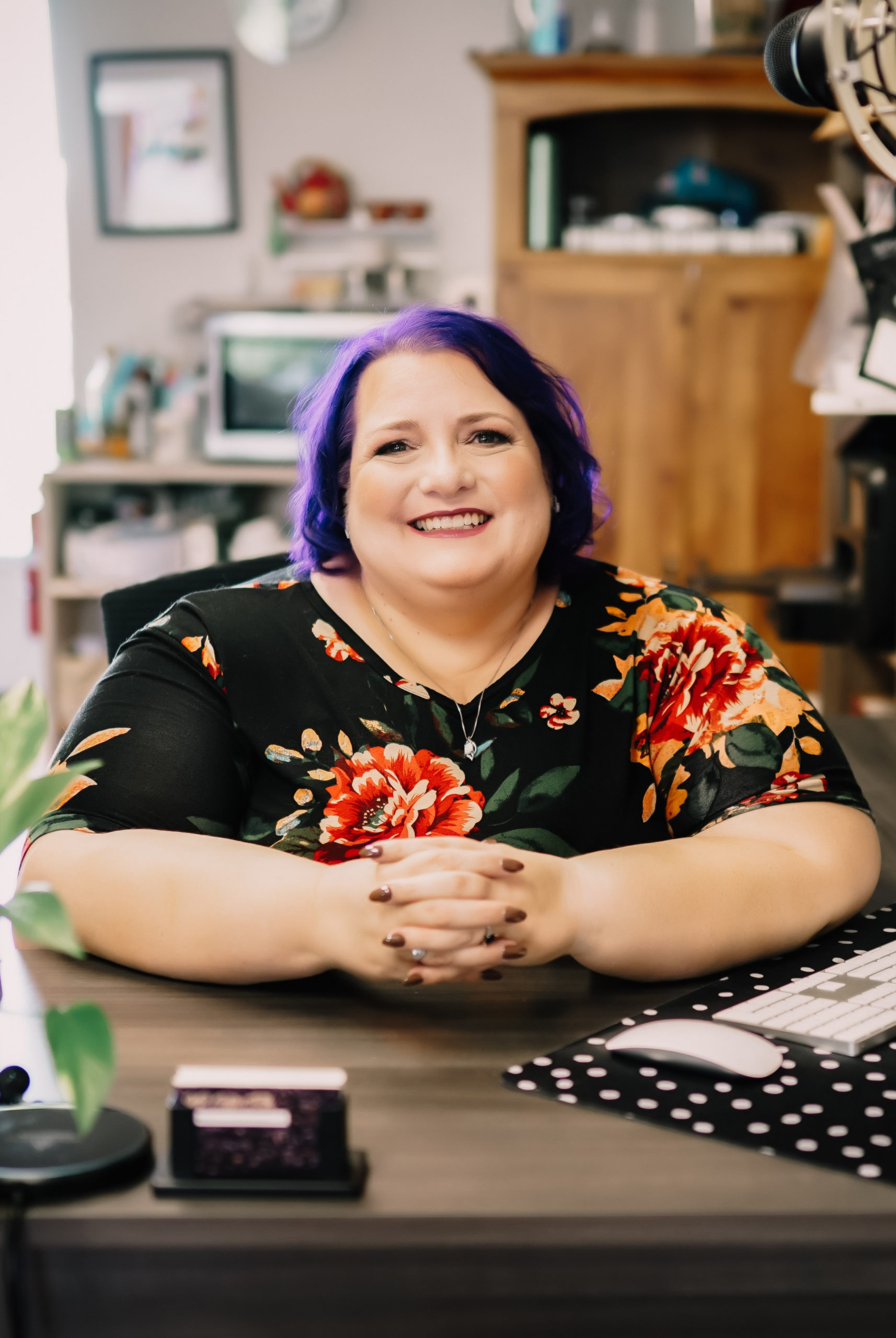
Michelle Frechette
Panelist and sponsorship organizer, moderator, and producer
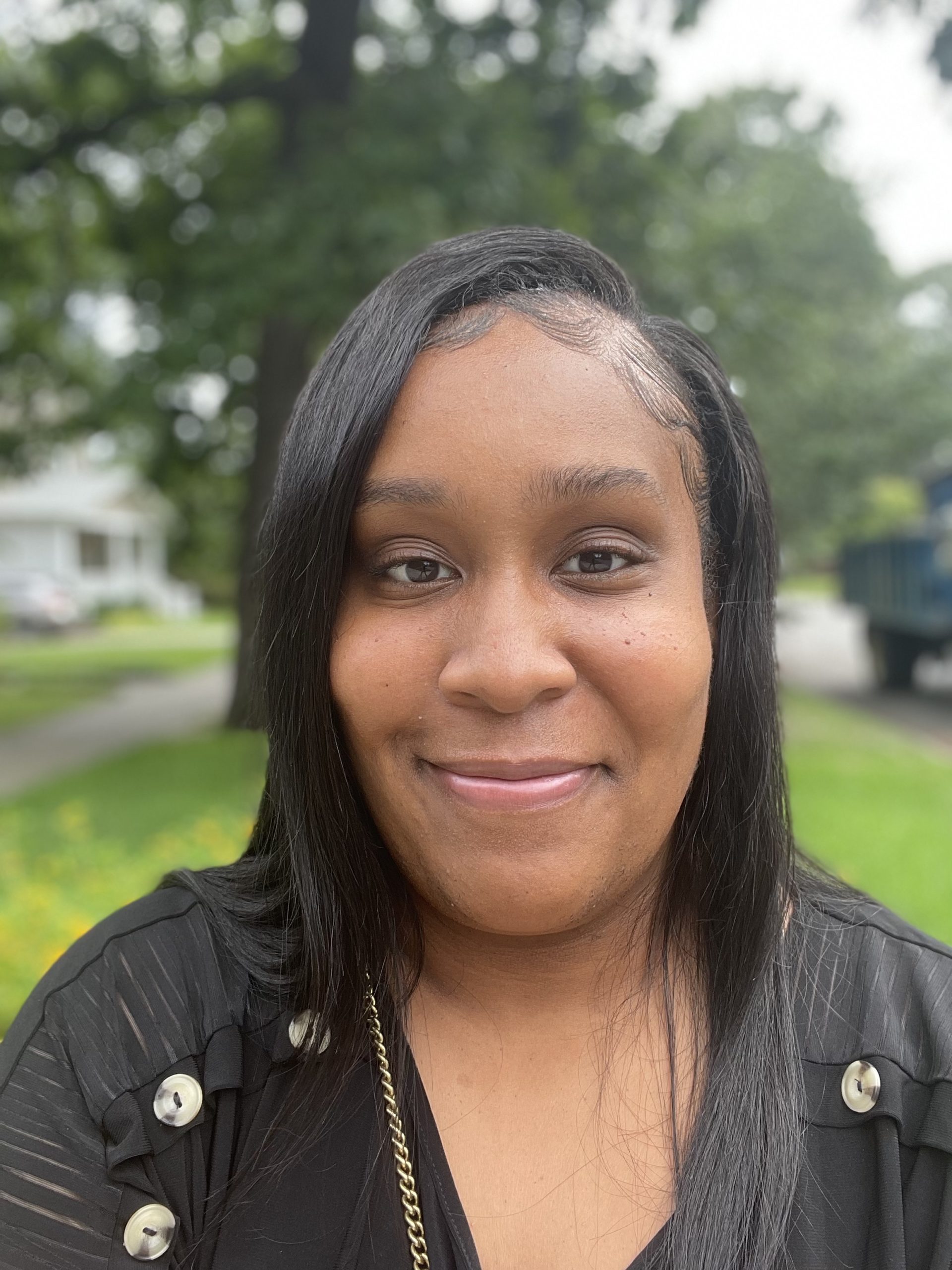
Nyasha Green
Moderator and social media manager.
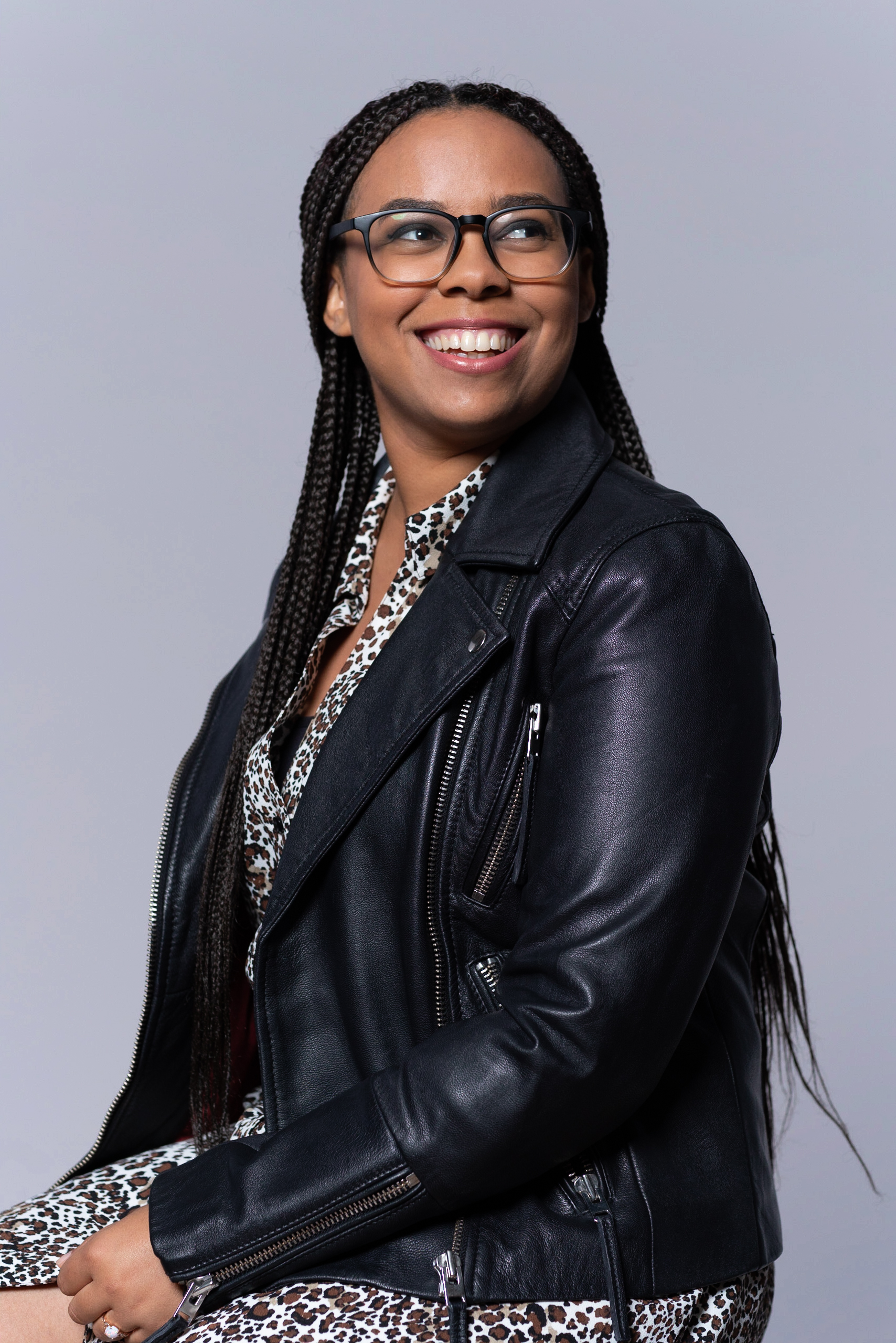
Allie Nimmons
Moderator, designer, editor and producer
Learn More About Underrepresented in Tech
Database
Use our database to connect with underrepresented folks to work with, or add yourself to find work and opportunities.
Podcast
Our weekly podcast discusses topics relating to underreprented people working in tech, as well as tips and advice for allies.
Newsletter
Our monthly newsletter contains news, updates, links, and more targeted toward the success of underrepresented people working in tech.
Our Services
Become a better ally. Pick our brains, or get help making your social media presence or your recruiting process more optimized for DEIB.

